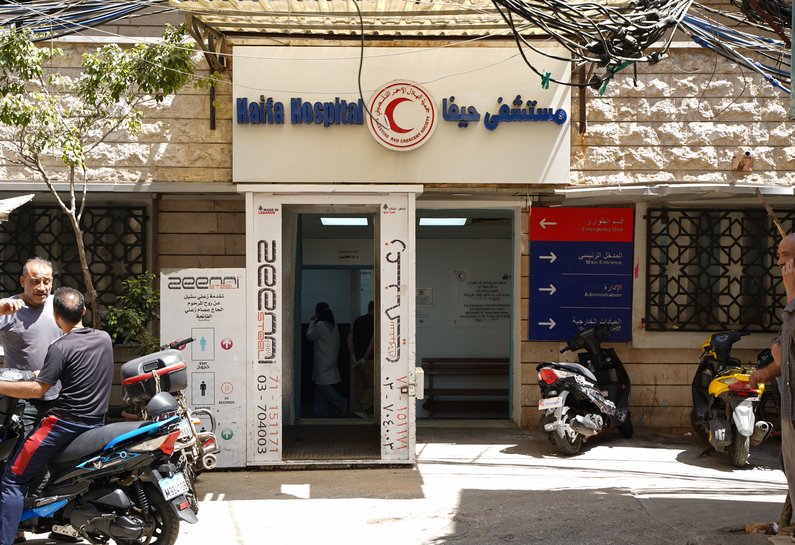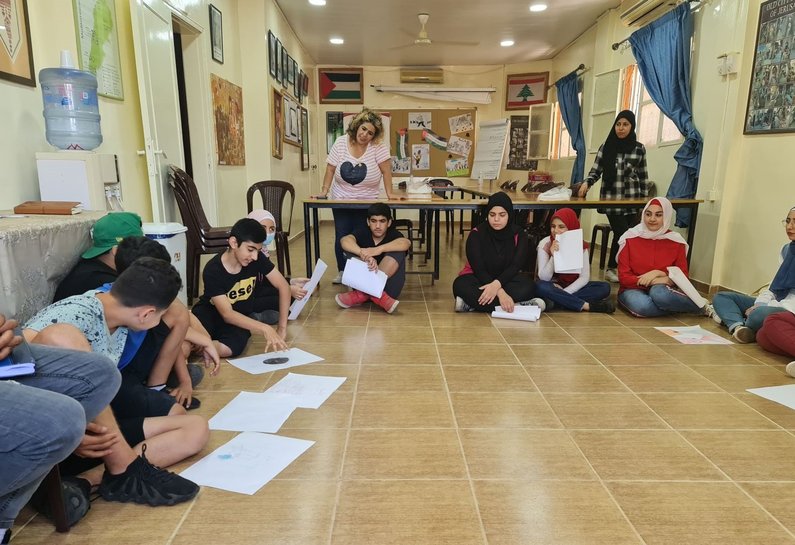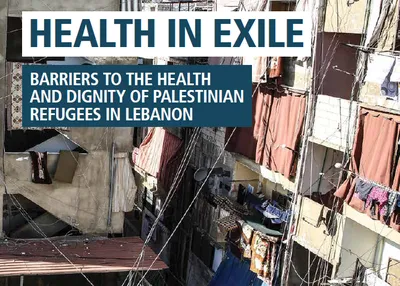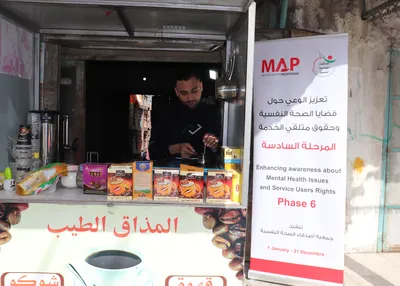“People are trying to live normal lives in abnormal conditions”

The first thing that struck me when I visited the Palestinian refugee camps in Lebanon was how people are trying to live normal lives with dignity, in abnormal conditions. When you see families going about their daily business and smiles on the faces of children playing, it is easy to forget the country’s ongoing dire economic crisis.
This is a crisis characterised by the collapse of the local currency, with inflation at an all-time high. In Lebanon, it is also easy to lose sight of the notion of a refugee ‘camp’, which indicates a sense of temporary shelter and transition. But the situation feels much more permanent for Palestinian refugees, who have lived in perpetual forced displacement for decades and are denied the right to return to their homelands by Israel.
When people do not have access to adequate healthcare and are prevented from working in a range of professions, the work of MAP and our partners is crucial. But when I spoke to many of our partners, the economic collapse is also having a huge impact on their operations.
Ahmad Dawood, Project Coordinator with the Community Based Rehabilitation Centre (CBRA) in northern Lebanon, who offer specialised services for children with disabilities and support to their caregivers, told me how the organisation is struggling to secure funding for its running costs, including the rent for its centre in Beddawi refugee camp. Regular and lengthy electricity cuts mean the lift in their centre is also not working, making it inaccessible for the people it serves.
But CBRA’s specialists are still managing to deliver their occupational therapy and educational sessions for children and their caregivers. “My son’s hand trembles which prevents him from holding a pencil and writing properly, and is affecting his performance at school,” the mother of one young boy told me. “The specialist is helping him a lot. She is doing exercises with him and has taught him to hold the pencil in a way where his hand is supported to overcome the issue. She has also taught me some activities to help him develop at home. We really enjoy coming to the centre.”

At the Palestine Red Crescent Society (PRCS) hospitals, financial constraints are also posing significant problems and many hospitals are unable to operate to their capacity due to a combination of rising fuel costs, shortages of medicines and equipment, and a lack of healthcare staff.
Meanwhile, access to healthcare for many Palestinians continues to be a challenge. “Space is an issue in Haifa hospital [in Burj El Barajneh refugee camp],” explained Dr Awad, PRCS’s Medical Director. “The hospital is inside the camp and even reaching it by car or ambulance is a problem. We have been trying to build new premises outside the camp, but we are unable to get a building permit so far.”
“Many families are food insecure”
Prices of basic goods in Lebanon have skyrocketed, leaving many refugees struggling to secure their basic needs, and putting women and children at particular risk. When I visited MAP’s team of midwives, who provide mothers and their children with health support and advice, they told me how the economic crisis has impacted the families they visit.
“Many families are food insecure. We give pregnant women nutritional advice, but they tell us they eat whatever is available, which is usually not enough for a nutritious meal,” said a midwife from the team in north Lebanon. “To add to that, multivitamins, which could help when they are not eating well, have become very expensive. The food parcels and the prenatal vitamins that we distributed helped a lot. Many mothers told us that they had nothing to cook or feed their children, and that the food parcel helped them stay food secure for a long time.”

In Ein El Hilweh refugee camp in the south of Lebanon, MAP’s partner Nabaa has established a centre providing reproductive health services and psychosocial support for children and their caregivers. Nabaa, with the support of MAP, also organise an annual breast cancer campaign, which offers free mammograms throughout the month of October.
“These activities are very important, especially in these difficult economic conditions,” explained Kafa, a Nurse and Health Educator. “Women forgo testing many times as they do not have the money.” Hiba, a Reproductive Health Project Coordinator, told me how Nabaa are now able to offer free breast cancer screening and mammograms throughout the year if a symptom is detected and a referral is made by a doctor.

Beit Atfal Assoumoud hosting a peer education session in Mar Elias refugee camp. (Credit: Wafa Dakwar / MAP).
During my visit, I also met with the Director of the Solidarity Association; the Director of Association Najdeh, who provide opportunities for women and girls; the UN agency for Palestinian refugees (UNRWA); the Director of the Ghassan Kanafani Cultural Foundation’s habilitation preschool, who support children with disabilities; and Beit Atfal Assomoud, who host peer education sessions for young people at Mar Elias refugee camp, south of Beirut.
In every conversation and interaction I had with the partners that MAP works with, I was struck by the dedication and commitment of staff at every level. Operating in such difficult circumstances, they inspired me and gave me optimism that the work that we are doing together is important, impactful and needed now more than ever before.
Help MAP and its partners continue to their vital work in the Palestinian refugee camps in Lebanon. Give a gift today.
Related content


